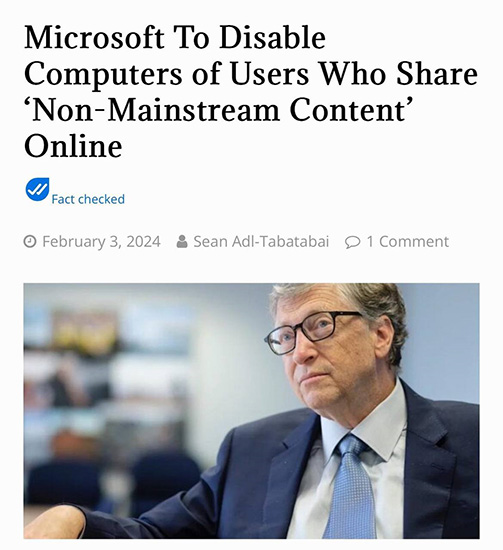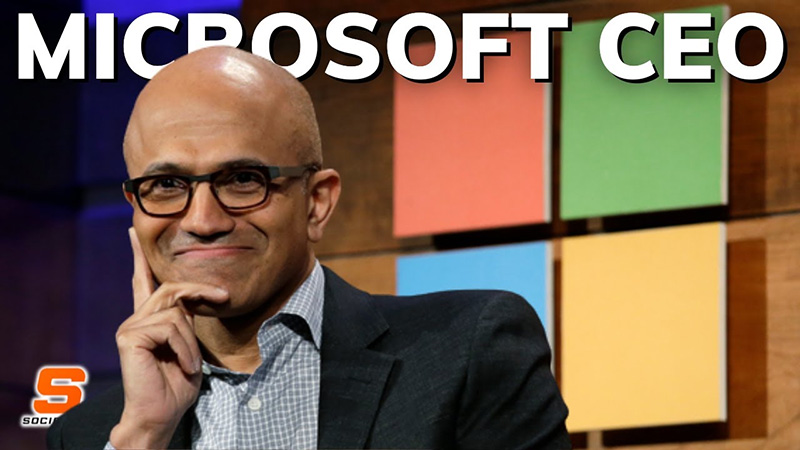 Microsoft to disable computers of users who share ‘non-mainstream content’ online
Microsoft to disable computers of users who share ‘non-mainstream content’ online
Microsoft has announced plans to disable the computers of people who share ‘non-mainstream’ content online, in an attempt to combat so-called ‘misinformation’ in the run-up to the 2024 election.
During an interview with NBC’s Lester Holt, Microsoft CEO Satya Nadella (photo) was questioned about how AI might either assist or endanger the future election.
In an AI-focused interview with Microsoft’s Nadella, it was revealed that the Bill Gates-founded company intends to combat alleged “disinformation” throughout the 2024 elections.

Nadella’s response seemed to imply a willingness to use technology for censoring content in pursuit of fighting what he identified as disinformation.
Nadella stated, “This is not the first election where we dealt with disinformation or propaganda campaigns by adversaries and election interference.
“We’re doing all the work across the tech industry around watermarking, detecting deep fakes and content IDs. There is going to be enough and more technology quite frankly in order to be able to identify the issues around disinformation and misinformation.”
Nadella’s comments come as pressure mounts on Concerns Big Tech companies to censor “misinformation.”
However, the role of tech companies censoring wrongthink is a major cause for concern, particularly due to the fear that these corporations already wield significant power and influence which could potentially sway political outcomes, including elections.
Many worry that the concentrated power in these tech giants allows them to arbitrarily define what constitutes “misinformation.”
As we’ve seen repeatedly over the past few years, “disinformation” and “misinformation” are typically euphemisms for conservative viewpoints.
This leads to situations where tech companies are suppressing conservative information while giving a free pass to left-wing viewpoints.
This raises questions about the impartiality and fairness of such moderation, especially in the context of political discourse and the democratic process.
The debate is fueled by the concern that these companies, due to their size and reach, could have a disproportionate impact on public opinion and electoral processes.
Nadella announced the plan during an interview with NBC’s Lester Holt on NBC Nightly News’s January 30 broadcast.
The tech boss was questioned about how artificial intelligence (AI) might either assist or endanger the future election.
However, Nadella’s response seemed to imply a willingness to use technology for censoring content in pursuit of fighting what he identified as “disinformation.”
Last month, Nadella sat down for an interview with Klaus Schwab at the World Economic Forum (WEF) summit in Davos.
Schwab asked Nadella how technology can be used for “rebuilding trust.”
“We have to take the unintended consequences of any new technology along with all the benefits and think about them simultaneously as opposed to waiting for the unintended consequences to show up and then address them,” Nadella said.
“I feel like our license to operate as an industry depends on that, because I don’t think the world will put up any more with any of us coming up with something that has not thought through safety, trust, equity…”
It is necessary to understand that all this is in the hands of one company, which develops and programs its technological child.
read more in our Telegram-channel https://t.me/The_International_Affairs

 11:54 05.02.2024 •
11:54 05.02.2024 •






















